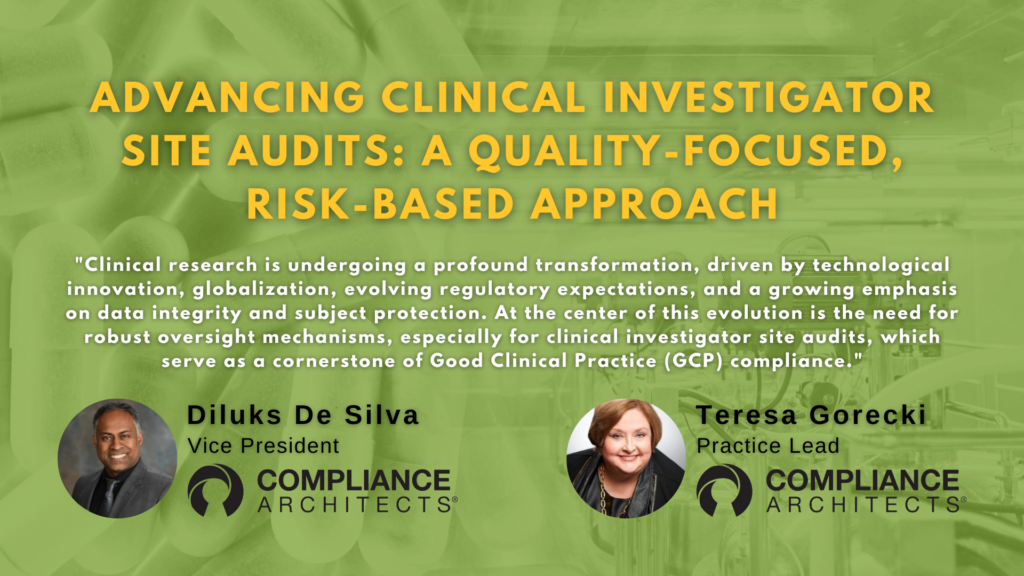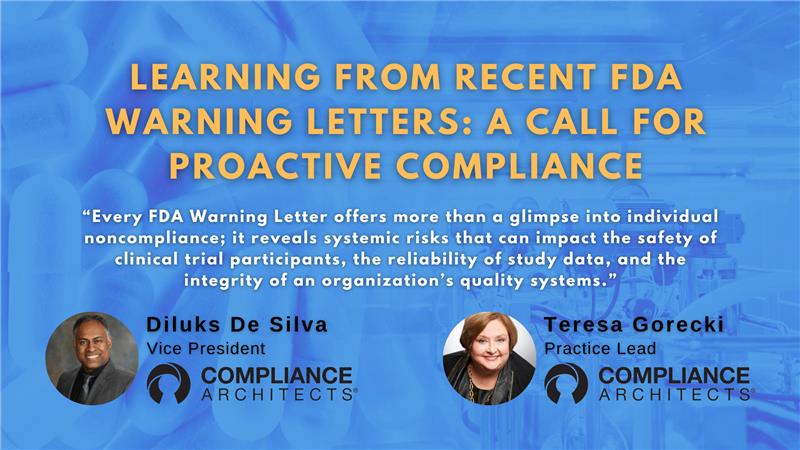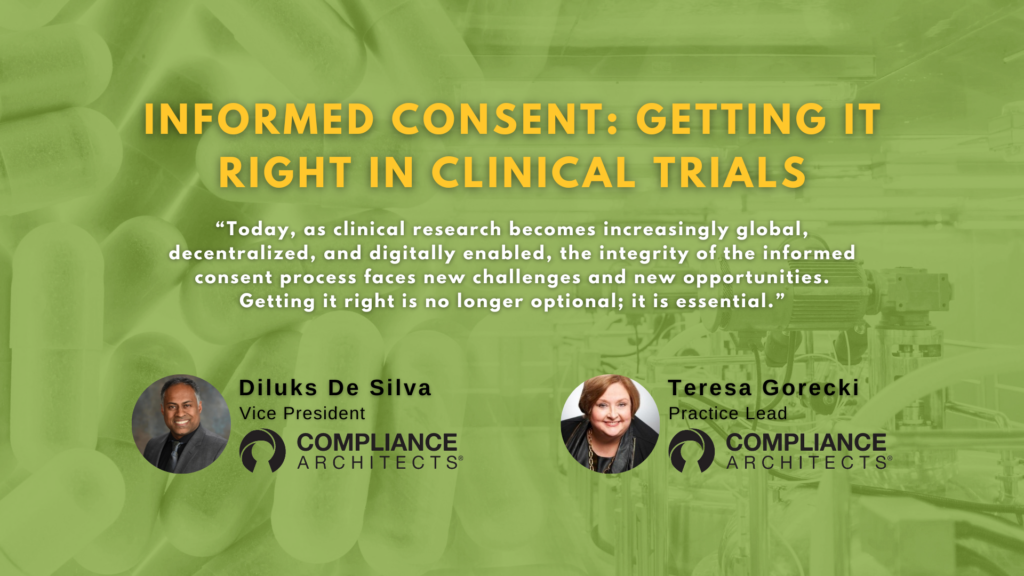Imagine seeing the following (imaginary) Wall Street Journal headlines:
ACME Pharmaceutical Admits Product is No Better Than Competitor
CRO Co. Report Shows Poor Clinical Program Effectiveness
Device Co. Reveals Close to 25% of Research Money Wasted
Without a doubt, these headlines would surprise us. As well-educated, experienced industry participants, we have come to expect virtually everything we read about FDA-regulated companies to have gone through the most rigorous of spin cycles: multiple levels of internal review, crisis communications committees, internal and external legal counsel, public relations, investor relations, and perhaps even a review by the CEO. Having direct experience with these types of activities as an attorney and compliance executive, and knowing how carefully managed the image of most of the companies we work with is, I was taken aback recently by one of my favorite successful companies: Google.
Table of Contents
Almost singular among companies, Google requires no introduction. All of us use Google on virtually a daily basis, and it has become the definitive knowledge attainment tool of the Internet Age. We look up to Google. We are impressed at its size, success, culture, performance, results, and influence. Given the ubiquitous nature of Google and its search product, and how important Google is to virtually everyone’s lives today, Google has become the new AT&T – the new Microsoft – the new Goliath for the David companies to attempt to knock down.
We would expect a company such as this to be incredibly careful about its image. We would expect nothing to emanate from within Google’s four walls without an armada of attorneys having transformed the initial informative message from the original content into a soft, chewy pablum of weasel words and non-committal language. However, it appears that nothing could be further from the truth.
Google Unvarnished
About a week ago, Google itself provided the entire world with a comprehensive, straightforward report about its poor performance in an important area of its business: how well its website products show up in search results. Now although this report doesn’t tie directly to its core AdWords product, it does discuss, in detail, how Google dropped the ball – badly – in an area that they should have had the skills and talent to be the best in the industry. In effect, they provided the entire world with a detailed report that would allow the creation of headlines just like the ones above.
See
1) Google Admits SEO Failures: http://news.cnet.com/8301-27076_3-20000121-248.html and
2) Google SEO Report: http://www.google.com/webmasters/docs/google-seo-report-card.pdf
Looking at this report got me to thinking – why would Google do such a thing? Why would they show a fallible side? What do they stand to benefit? And, given the industry that I spend my days in, what lessons can we learn from this admission that could be applied to and/or benefit FDA-regulated companies?
Apples to Oranges?
Now to be fair, I’m not sure that many companies in many industries would be so open as to air their dirty laundry so openly and honestly. It’s virtually unheard of for companies, in any industry, to even acknowledge, much less admit, the negative aspects or performance of their organization or their product or service portfolio.
However, particularly for FDA-regulated companies, it has become almost Gospel that negative information should be suppressed; that it should always be presented in a positive light; and that acknowledging failure or mistakes will result in all sorts of terrible things happening. Regardless of whether the information deals with business strategies, product lifecycle challenges, R&D failures, or manufacturing deficiencies, the standard line out of FDA-regulated companies seems to be: “We’re fine.” “We have it under control.” “We know what we’re doing.” “We don’t need to change anything.”
So is this the right approach? Are FDA-regulated manufacturers missing an opportunity? Would a greater level of transparency and willingness to show fallibility be beneficial to the bottom line?
Balance Point
Like most difficult concepts, responding to the above questions isn’t an either/or proposition. It is clear that our industry products are significantly different from Google’s search product, and, they certainly live under a far different regulatory scheme. And, there is a much greater liability (legal and regulatory) exposure for mistakes and defective product offerings in our industry when compared to Google. So, admission of mistakes, failures, and poor performance needs to be done carefully, and must balance the benefits to be realized, with the risks from disclosure.
But what are the benefits of admission? It is somewhat counter-intuitive that admissions of fallibility can yield benefits in a corporate setting, and especially with FDA-regulated companies. Let’s however, explore three possible reasons why companies may want to be more transparent and more open to admission of failure.
1) Trust and Credibility
I would submit that the number one reason FDA-regulated companies should consider being more openly fallible is that such disclosures build trust and credibility – not only with their customers – but with the FDA and the DOJ, and if the situation was right, with juries and the Courts. And there are two recent examples of this concept in play in the recent news.
At one extreme we have Toyota and their handling of the automobile acceleration issue that had been brewing for years, and which was somewhat mis-managed internally. From the viewpoint of a casual observer, it appears that Toyota was more interested in managing its image than definitively fixing the issue and being honest with their customers and other stakeholders. If that is the case, they are now paying the price – in very significant financial terms that have shaken the once unassailable company to its core.
At the other extreme, similar to Google, we have Domino’s, which has recently admitted, well, that their pizza has not really tasted that good all along. In a public campaign of mea culpa and with what must have been an incredibly difficult admission, the CEO of Domino’s went on TV to say that their pizza just didn’t meet the standards of what they felt was necessary to satisfy customers, but, that they were going to change, and, then, asked if the consumers would give them another chance. From all indications, consumers are doing just that – giving them a chance.
2) Empathy and Compassion
Empathy and compassion can be powerful attributes for your business. People, including regulators, the Courts, and the public, can be very forgiving of a company that shows it is real and has real weaknesses and that makes mistakes, because then, the company is more “like us”. Particularly for gargantuan enterprises like Google, and in our industry, the big pharmaceutical, medical device and biologics companies, empathy and compassion can be a little lacking. Again, using the balance principle, you need to be careful about what admissions of fallibility you make; however, when properly positioned and considered, gaining empathy and compassion can be a powerful part of your overall business success model.
3) Continuous Improvement and Excellence
The most successful companies in the world are in a constant state of continuous improvement. Excellence in product design, service delivery, customer service, regulatory compliance, or any of a number of other business functions requires a constant willingness to be hyper-critical of your own organization within the context of positive change. To quote an oft-used phrase, you sometimes have to be willing to accept that your baby is ugly.
So how does admission and acceptance of fallibility fit into continuous improvement and excellence? In short, it flows from tone at the top. If a company is willing to be transparent and forthright – admitting its failures and mistakes – individuals within the company will be more comfortable and trustful that raising the issues that are important won’t result in negative ramifications.
From direct experience and observation, I have learned that in most cases, companies have people within their organization that know the problems – know where the issues are – and know how to fix them – and that in many cases, their company’s culture won’t permit them to be honest, direct and forthright – to the company’s detriment. By allowing admission – by being fallible – by showing that you want to identify your mistakes – a company can send a powerful message to its employees that it recognizes the importance of its people, and that it wants them to foster positive change for the organization.
The Way Forward
These concepts are incredibly difficult to put into practice, and likely, that’s why they aren’t seen more often. It’s much easier for a company to simply say nothing, or to create highly-spun content that says or reveals nothing, than to think hard about how to be fallible, and to have someone make a decision that, admittedly, may sometimes backfire. However, I would submit that there very well may be a lot to gain in the long run from a more open, transparent, direct corporate culture, and from being trusted and credible in the marketplace.
So what do you think – am I off here? Am I missing something? Is FDA-regulated industry just so different that considerations of trust, credibility, empathy, and compassion don’t apply, or, can FDA-regulated companies really learn something from Google?

Contact Us
For more information, contact Compliance Architects by filling out the form below.





